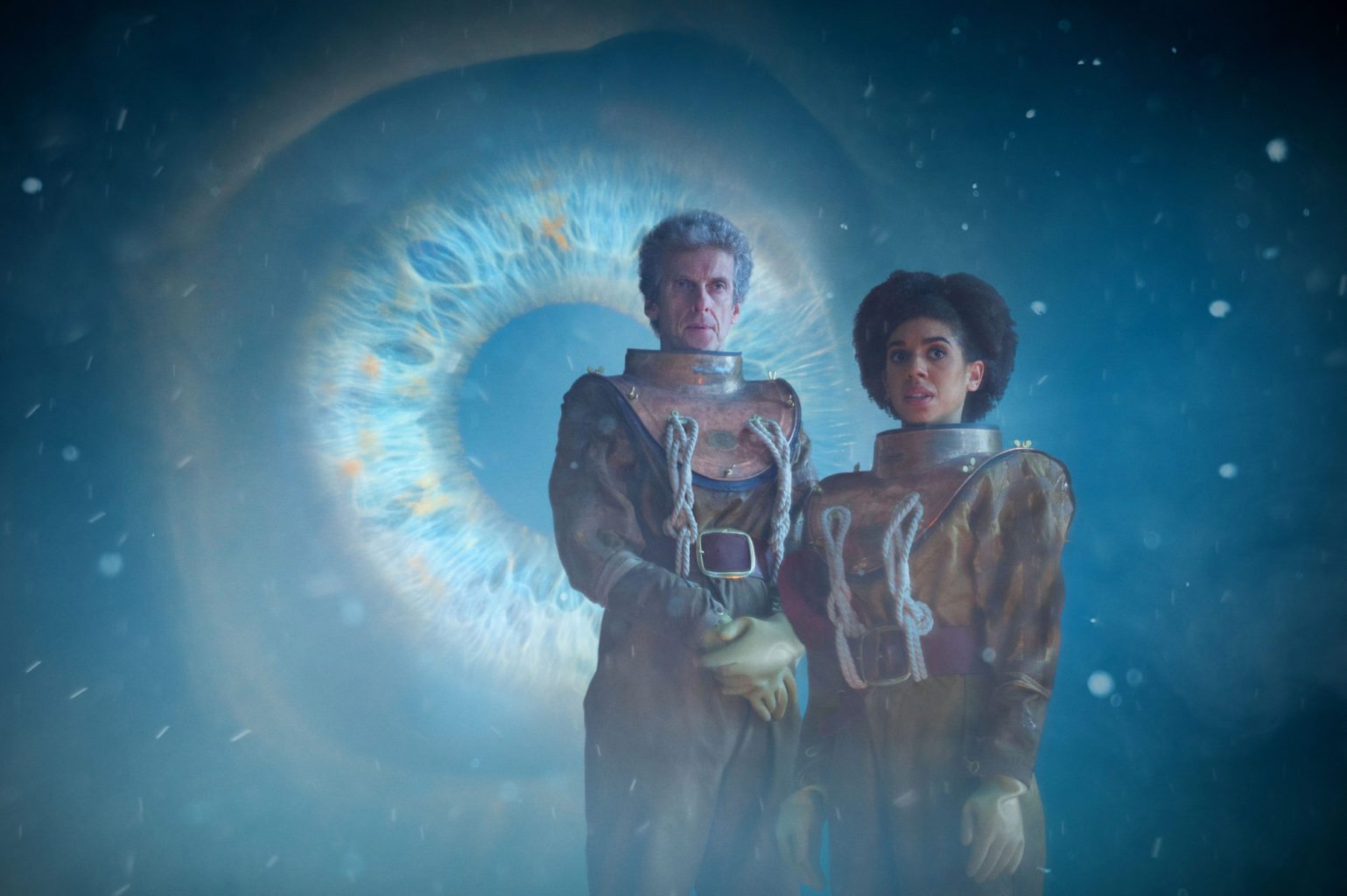Doctor Who – Thin Ice
After last week’s futuristic off-world extravaganza, we now head back into the past for the return of classic Who staples such as nineteenth century London and the large CGI monster. Despite such familiar elements, ‘Thin Ice’ manages to avoid the stiffness that can sometimes plague such historical episodes and manages to provide a visually impressive episode that feels fresh, exciting and thoughtful.
‘Thin Ice’ sees the Doctor and Bill arrive in 1814 London for the final day of the last great Thames frost fair (no coincidence there) where strange lights are appearing in the Thames and people are disappearing below the ice. After discovering that the gigantic sea creature responsible is being held hostage and exploited by greedy humans, the Doctor and Bill decide to exact justice.
‘Thin Ice’ manages to avoid the stiffness that can sometimes plague such historical episodes.
Despite an early playful tone exploring the wonders of the frost fair, the episode very suddenly veers into dark territory with the death of young urchin Perry. This is hardly the first time the show has dealt the Doctor’s constant companion of death, but even for the battle-scarred and hardened twelfth Doctor his reaction seemed too uncharacteristically cold (no pun intended). Indeed, during Eccleston’s and Tennant’s runs the show excelled at showing how Doctor was truly haunted by the many deaths associated with him, so his nonplussed response to the young boy’s death doesn’t sit quite right. Nonetheless, Bill’s confrontation of the Doctor over this is well done, showing the Doctor’s unease and in particular showing Bill to be relatable and quick to ask the difficult questions.

The Doctor and Bill on the ice. Photo: Simon Ridgway, BBC
Indeed, this whole episode showed a much more positive light to Bill in what is her best outing yet. With her rambling restrained, we got to see Bill act as the Doctor’s moral compass and bring some humanity to proceedings, as well as not being afraid to stand up for herself and challenge the Doctor when necessary. It was easily Bill who came out of this episode best, rather than the Doctor or the many one-note new characters, proving herself to be caring, thoughtful and increasingly relatable. The humour she brought must also be noted, whether joking about ‘Pete’ with the Doctor or the great implied joke following the grim discovery of the truth of the Thames ‘mud’.
The episode should also be credited for several new perspectives. Bill again proved her worth by questioning how affecting the past can impact the present, something which is addressed quite rarely for a time-travel show and is of course a natural question for a companion’s first visit to the past. However, of more importance is the addressal of the racism, among other societal problems, that existed in the era. Doctor Who often shies away from the harder truths of human history, so for the show to raise – and in the Doctor’s case, combat – sensitive themes such as racism (and to a lesser extent, capitalism and poverty) is commendable, even if relatively brief.
Complaints are few, other than that Lord Sutcliffe amounted to little more than a pantomime villain with no real agenda other than money. Special effects were a tad clunky at times (as is to be expected with Who’s relatively modest budget), even if the large visual effect that was Tiny was mostly quite convincing. Overall, this was an above-average episode containing all the ingredients of a standard historical Who episode and more, elevated by some serious undertones.
The tone however looks to change sharply next week, as Doctor Who goes full haunted house with David Suchet!

Comments